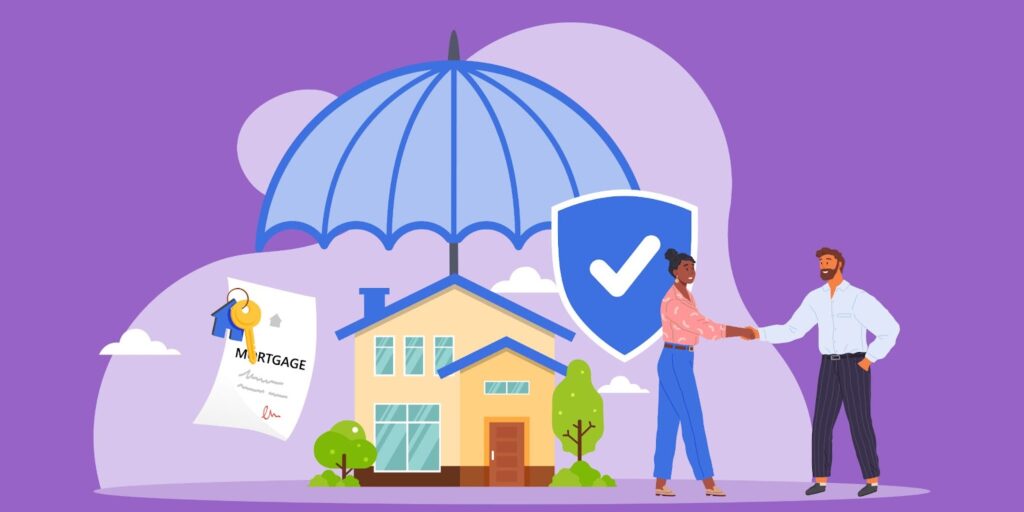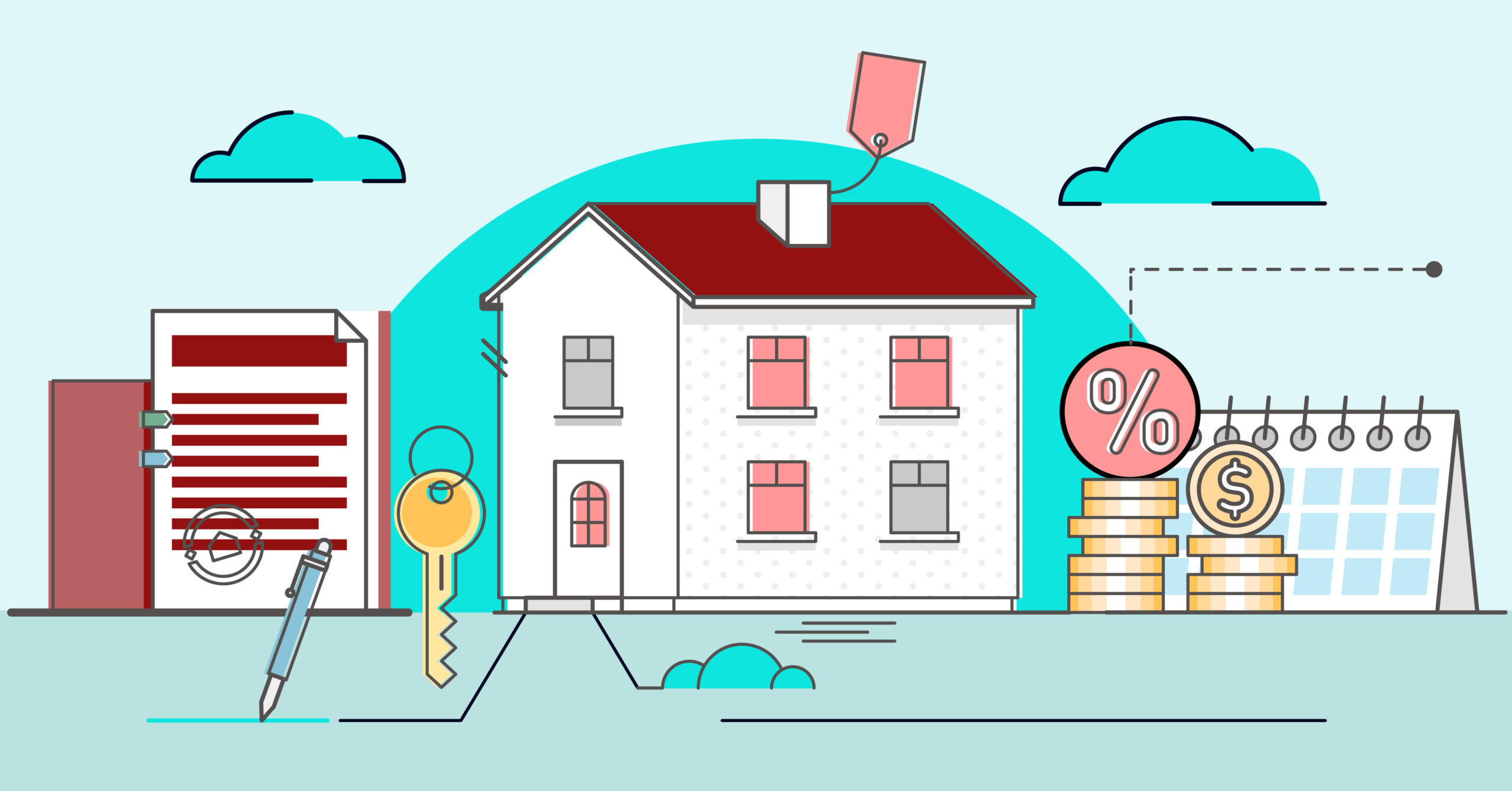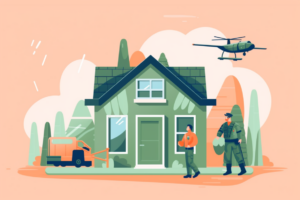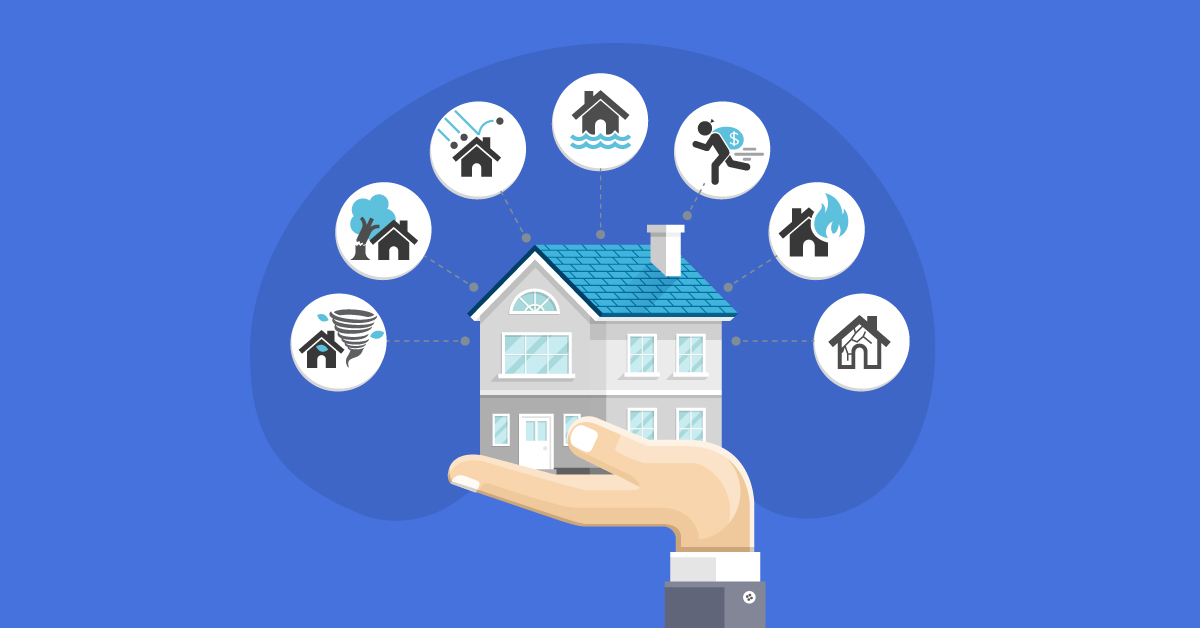Mortgage insurance is a requirement for FHA mortgages and private loans with a down payment of less than 20% of the total loan amount. Some home buyers opt to take on the additional cost of paying for this insurance to purchase a home earlier than they would otherwise be able to do.
The Purpose of Mortgage Insurance
You, as the homeowner, are responsible for paying for mortgage insurance. The purpose of this insurance is to provide extra financial assurance to the lender in case you default on your mortgage, as they receive part of the principal amount as compensation. Mortgage insurance essentially lowers the risk the lender takes on by offering you a loan. While it increases the overall cost of the loan, it helps borrowers qualify for a higher home loan amount and get a more competitive rate.
The terms of the mortgage insurance agreement benefit the lender. Even with it, you are still responsible for paying your loan and risk a negative impact on your credit or having your home foreclosed if you miss too many payments or stop paying completely.
Different Types of Mortgage Insurance for Conventional and FHA Loans
There are two main types of mortgage insurance. Conventional loans are taken out through private lenders and aren’t federally guaranteed like FHA mortgages.
Private Mortgage Insurance (PMI)
Some lenders of conventional mortgages provide loans with as little as 3% down. Most require you to purchase private mortgage insurance for any loan with a down payment under 20%. Your lender may arrange the insurance through a private company of its choosing.
Monthly premiums for PMI are usually added to the total cost of your mortgage premium payment. You can request cancellation of your PMI once you have made enough payments to achieve 20% equity. Also, if your home’s value increases to give you enough equity, and you have made enough premium payments (usually two years if you have 25% equity and five years for 20% equity), you can request cancellation. Under federal law, your mortgage insurance is canceled by your lender automatically once you have 22% equity and are current on your payments.
Most borrowers paying PMI are purchasing a home for the first time. They also frequently have a higher debt-to-income ratio along with a lower credit score than borrowers who make a down payment in an amount over 20%, exempting them from private mortgage insurance.
Mortgage Insurance Premium (MIP)
MIP is the insurance required for mortgages backed by the Federal Housing Administration (FHA). Many borrowers who have poor credit scores or hold debt and can’t qualify for a conventional mortgage are able to finance a home loan through the FHA.
With MIP, your premiums are paid to the FHA. Homebuyers must be aware that the majority of FHA loans require an annual premium along with an upfront premium. These conditions apply regardless of the down payment, which has a minimum amount of 3.5%.
The annual premium amount falls between 0.45% and 1.05% of the current year’s average balance. Credit scores don’t affect the premium amount. For loans with a downpayment under 10%, you pay this premium in monthly payments for the entire life of the loan. With a down payment of over 10%, you’ll be responsible for these payments for 11 years. The FHA is changing its MIP rates for new mortgages beginning March 20, 2023. On this date, the rates drop to a range of 0.15% to 0.75%, with the average at 0.55%.
At the time of closing on your mortgage loan, you are responsible for paying the upfront premium of 1.75% of the loan. You can also choose to include this amount in the balance of your loan to pay over time.
Loans That Don’t Require Mortgage Insurance

There are several types of mortgages that don’t require mortgage insurance. However, these options typically have other associated fees:
- USDA loans are guaranteed by the U.S. Department of Agriculture. These loans are for rural home buyers and don’t require a down payment. They do have an upfront fee of 1% at the time of closing, along with an annual fee of 0.35% of the yearly loan balance. The annual fee is calculated and then added to your monthly mortgage payment each month, so you don’t need to pay it all at once.
- The U.S. Department of Veterans Affairs backs VA loans. They also require zero down payment. VA loans are available for military service members (active, disabled, or retired), eligible surviving spouses, and some reservists and members of the National Guard. A funding fee of 1.4% to 3.6% applies to most VA loans. Your rate is calculated based on your down payment, whether the loan is for a new home or refinance, type of service, disability status, and how many VA loans you’ve had. Fee amounts are scheduled to decrease to a range of 1.25% to 3.3% for new mortgages beginning on April 7, 2023.
The Cost of Mortgage Insurance
The cost of your insurance premium is a percentage of your total home loan amount. It depends on several factors, including:
- Type of loan
- Fixed or adjustable interest rate
- Credit score
- Home value
- Loan-to-value ratio
- Mortgage term
- Lender’s insurance requirements
For PMI paid monthly on a 30-year fixed-rate loan, the average range is between 0.17% and 1.86%, or $170 to $1,860 per $100,000. Divided into monthly payment amounts, that comes to around $14 to $155 per $100,000. Premiums for adjustable-rate loans can go up to 2.33%, which equals about $194 per month per $100,000 that you borrow. Borrowers with good credit have a better chance of getting a lower rate since they are considered a lower risk for the lender.
For borrowers eligible for a declining renewal policy, your premium amount decreases as the equity you have in your home increases. Constant renewal policies have a fixed premium amount for the first 10 years that is based on the original amount of your loan.
Final Thoughts on Mortgage Insurance
Home buyers that are ready to buy now find mortgage insurance a worthy cost when it means qualifying for a mortgage sooner instead of saving for a larger down payment. It’s important to compare several lenders to explore your options and get the best possible loan terms. If you are a first-time home buyer, your state may offer a program for loans with a low down payment. These programs typically have lower mortgage insurance or may waive the requirement entirely.
Most home buyers seeking a conventional mortgage can expect to pay mortgage insurance unless they put down 20% or more toward their new home. This increases the total cost of the loan, so remember to estimate the cost and factor it into your budget. You can use an online calculator to get an idea of your rate. It’s essential to understand all the costs and fees to avoid surprises that make it difficult to afford your new mortgage.
You might also be interested in: How to Shop for Home Insurance and Different Levels of Coverage





